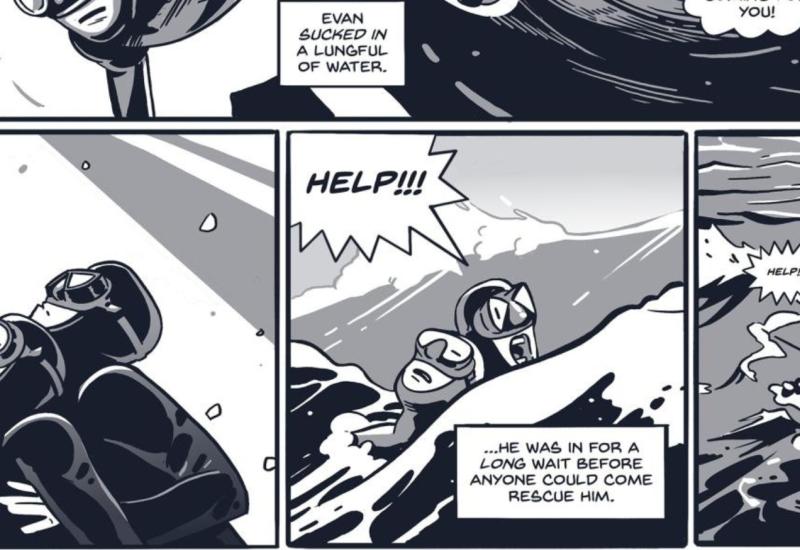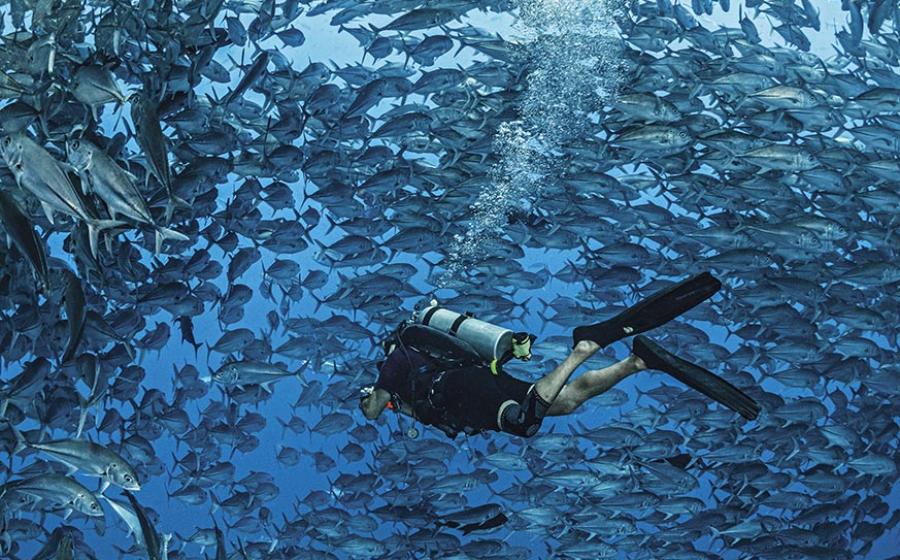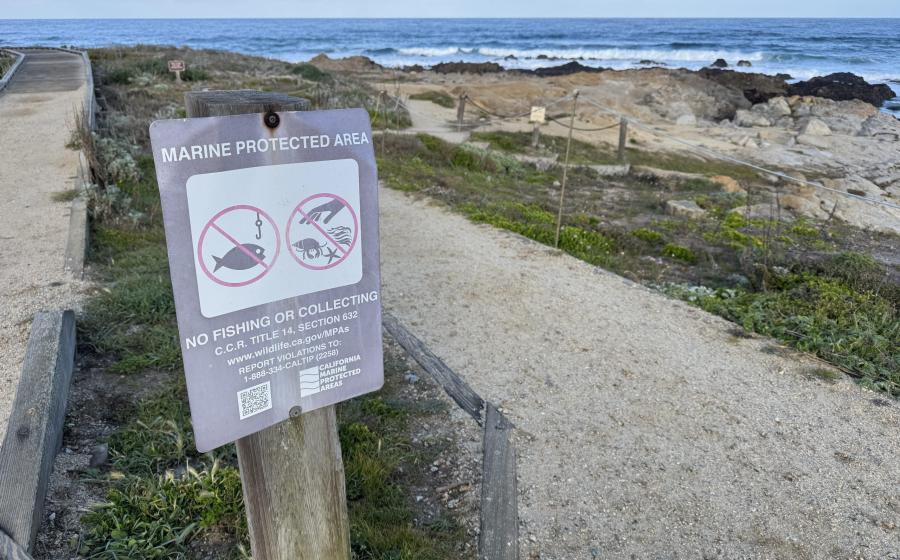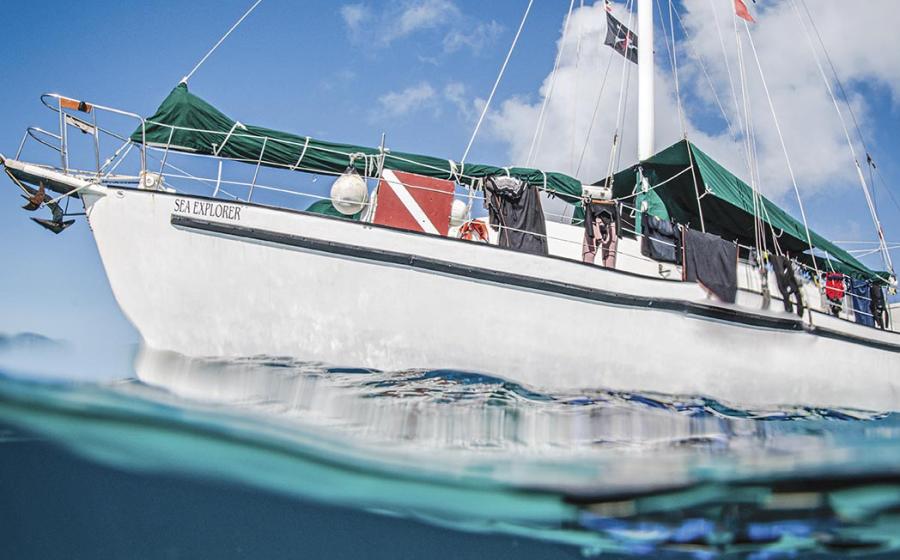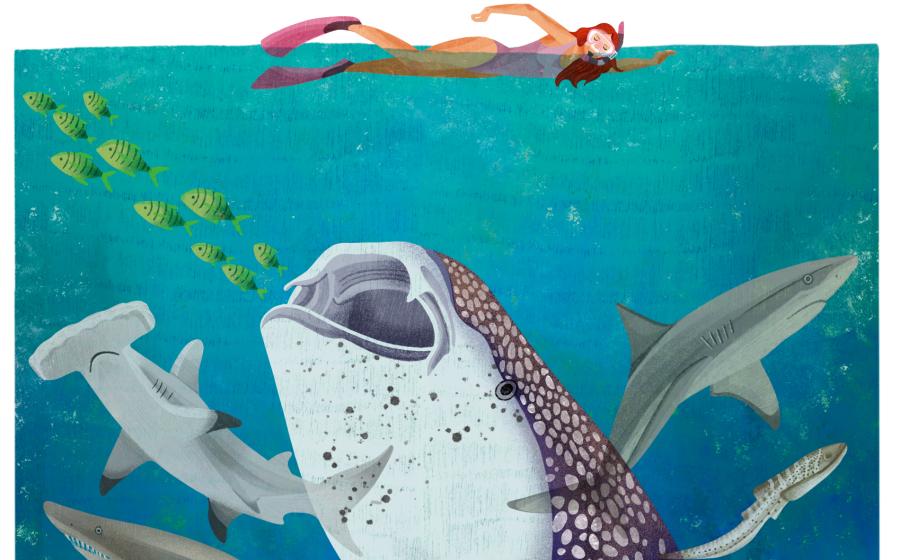How Does the Moon Affect Marine Life Behavior?
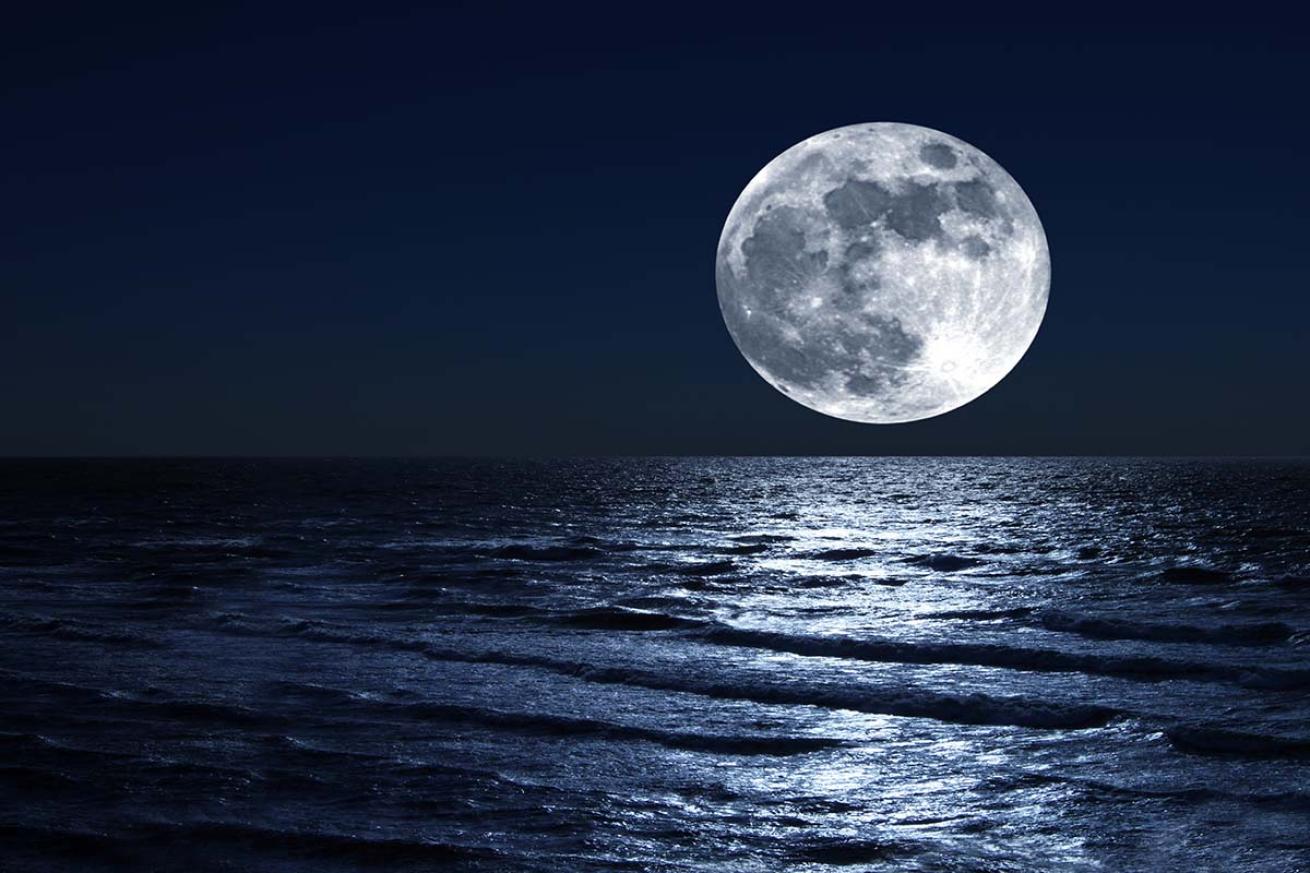
Shutterstock.com/krasowitTides have a major influence on ocean life, but the moon's impact doesn't stop here.
Question: Other than the tides, does the moon affect any behavior among marine life? - Anna K, London
Answer: The moon impacts marine organisms’ behaviors in all sorts of fascinating and unexpected ways! First and foremost, I know you said “other than the tides,” but the tides are extremely important and worth briefly discussing. Organisms that live in the intertidal zone have to deal with being underwater half the time and exposed to the air half the time, a really challenging set of physiological stressors. Organisms that are used to being underwater all the time may find themselves trapped in a tide pool that slowly heats up and runs out of air, all while having nowhere to hide from predators. And in places with huge tidal ranges like the Bay of Fundy, the current from a tide going in our out is strong enough to carry many animals along with it.
Now, beyond the tides: light from the moon makes it easier for young fish to spot their zooplankton prey at night. On the flip side, it also makes it harder for predators to sneak up on prey. The phases of the moon also influence things like oyster feeding behavior, with oysters feeding more or less rapidly depending on the cycle of the moon, (this may be related to changes in tidal strength bringing more or less food nearby). Some organisms like beach invertebrates also have a lunar compass that allows them to orient themselves relative to their environment based on the moon.
Perhaps the most spectacular example of how the moon influences the behavior of marine life is by coordinating mass spawning. Spawning occurs when all of the organisms in a population release their eggs and sperm into the water at the same time. But how do organisms like corals know when the time is right to spawn? After all, they can’t read a calendar, and they can’t talk to each other. Many marine organisms coordinate mass spawning based on phases of the moon! The Great Barrier Reef’s annual mass spawning is believed to be based on moon phase, and it has been called the largest sexual event on the planet. Lots of fish species, as well as invertebrates like marine worms, also coordinate their mass spawning events based on the phase of the moon!
Ask a Marine Biologist is a monthly column where Dr. David Shiffman answers your questions about the underwater world. Topics are chosen from reader-submitted queries as well as data from common internet searches. If you have a question you’d like answered in a future Ask a Marine Biologist column, or if you have a question about the answer given in this column, email Shiffman at [email protected] with subject line “Ask a marine biologist.”

Courtesy ImageDavid Shiffman
Dr. David Shiffman is a marine conservation biologist specializing in the ecology and conservation of sharks. An award-winning public science educator, David has spoken to thousands of people around the world about marine biology and conservation and has bylines with the Washington Post, Scientific American, New Scientist, Gizmodo and more. Follow him on @WhySharksMatter on Twitter, Facebook and Instagram, where he’s always happy to answer any questions about sharks.
The views expressed in this article are those of David Shiffman, and not necessarily the views Scuba Diving magazine.




